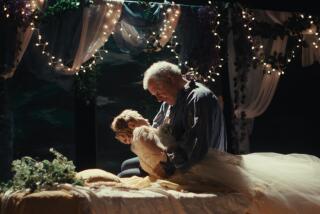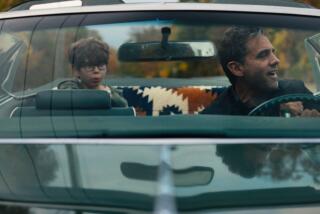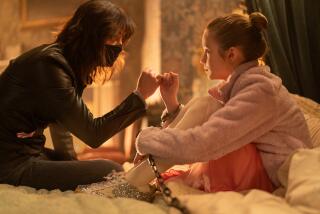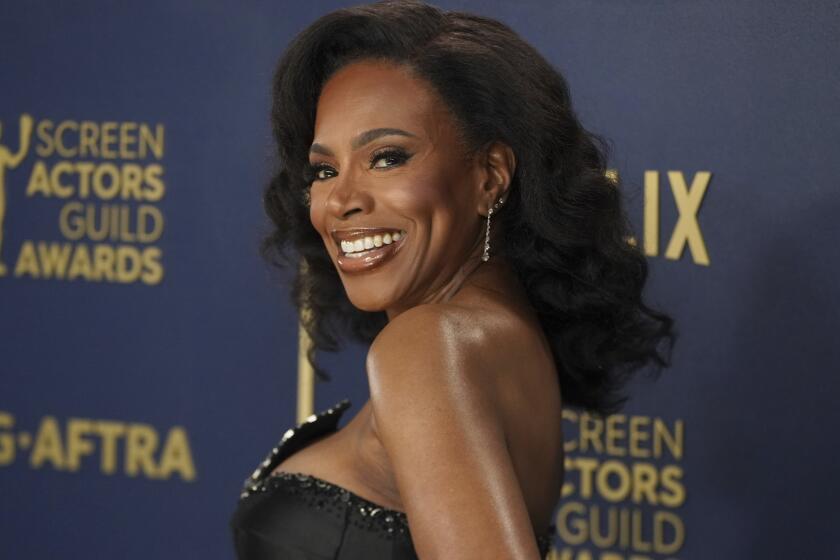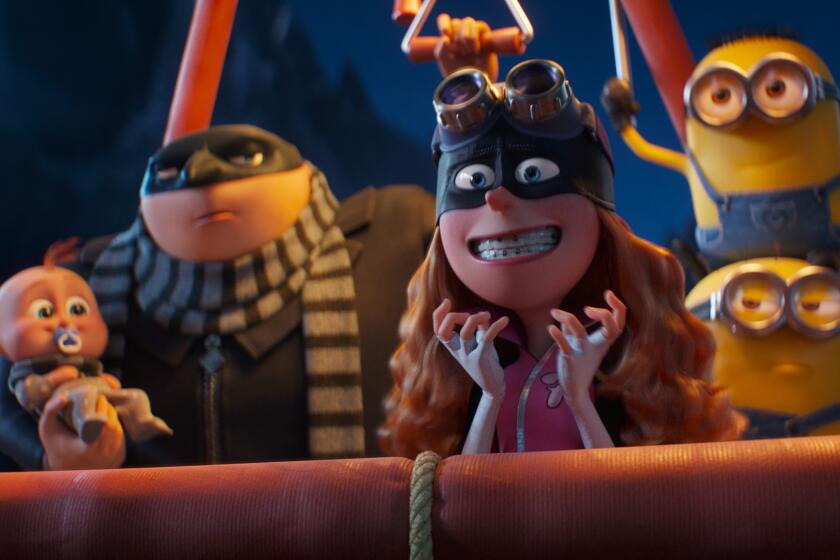Indie Focus: Lynne Ramsay talks about ‘Kevin’
“We Need to Talk About Kevin” plays as part horror film, part upside-down love story in its intense tale of a mother’s affection (or lack thereof) and the son who lashes out in a way that is both a cry for attention and an odd, uncomfortable gift. The film raises the specter of the eternal question of nature versus nurture and whether it is possible to simply be born bad.
“Kevin” marks a return to the screen for director and co-writer Lynne Ramsay, one of the leading lights of young British cinema making her first film in nearly 10 years. The film stars Tilda Swinton as Eva Khatchadourian, a travel writer who never quite takes to motherhood after the birth of her son, Kevin (played as a teenager with chilling intensity by Ezra Miller). Adapted by Ramsay with her husband, Rory Stewart Kinnear, from the novel by Lionel Shriver, the relationship between Eva and Kevin escalates in its antagonism as their mutual feelings of repulsion and attraction for one another grow apace. Shortly after learning that his parents intend to separate, teenage Kevin goes on a vicious killing spree.
Told with a bracing subjectivity from Eva’s perspective before and after Kevin’s murders, the film portrays her unflinching self-examination and the ways in which she punishes herself by staying in the town where they lived. Though in part to be closer to Kevin while he’s in juvenile prison, she also sets herself up to endure countless small humiliations doled out as her own private sentence: broken eggs at the market, red paint splattered on her house and car, a vicious slap in a parking lot.
“It’s not a traditional horror film, it’s Eva’s horror film, because Eva has to live with that bloody horror every day,” said Ramsay recently, sitting alongside Kinnear at a Hollywood hotel. “Imagine if that happened to you. It’s a psychological horror film; it’s a subjective horror film. She can’t trust her own memories as true or not. I think Ezra and Tilda really got that from early on,” says Ramsay, a 5-foot-2 bundle of ideas and energy
The film, which had a brief qualifying run and returns to cinemas in mid-January, has sharply divided opinion since it premiered in the main competition earlier in the year at the Cannes Film Festival. It has since picked up a best film prize at the London Film Festival, snagged Ramsay best director at the British Independent Film Awards and Swinton lead actress nominations from both SAG and the Golden Globes.
Ramsay, 42, born and raised in Glasgow, Scotland, has been among the most celebrated British filmmakers of her generation. Following a series of award-winning short films, she made her feature debut with “Ratcatcher” in 1999, an evocatively lyrical exploration of childhood and young adolescence. She followed that with the psychedelic, expansive “Morvern Callar” in 2002, a bold portrait of self-possession and personal exploration adapted from Alan Warner’s novel.
Her next film was to be an adaptation of the novel “The Lovely Bones,” to which she became attached before it became a worldwide bestseller, setting off a long and difficult process that saw her eventually leaving the project after a protracted behind-the-scenes power struggle. Coupled with the unexpected deaths of her father and writing partner Liana Dognini, the experience left Ramsay, in her own words, “badly depressed for what seemed like a very long time.”
“I think Lynne was set on not doing another adaptation after ‘Bones,’” Kinnear said. “But the book came through the door, and I read it in two days; it’s such an original concept, such an original story, and it was the subject matter — not the high school shooting but the relationship between this mother and son.”
The novel is structured as a series of letters from Eva to Kevin’s father, but Ramsay says the conceit of the letters was out from Day One (with Shriver’s approval), as she was drawn more to the story’s emotional core than its style. The film’s associative, razor-cut style emerged in the writing process, tripping through Eva’s mind even on the page.
“I hadn’t seen a film that was about that subject matter,” Ramsay said of the film’s examination of the anxiety of motherhood. “‘Rosemary’s Baby’ is about this fear, but you have the supernatural element as something to hold on to so you can still sleep at night. And ‘Kevin’ still had some genre elements. It was a page-turner, like I know something bad has happened but I want to know more, like a magnetic force. And I wanted to keep that structure. That was interesting as a filmmaker.”
Revitalized and recharged, Ramsay hopes her next film will come quicker now, as she and Kinnear have collaborated on a number of other scripts, including a sci-fi variation of “Moby-Dick” set in space. Both Kinnear and Ramsay also note that the age-old question of nature versus nurture was not one they ever set out to answer.
“Talking about ‘Kevin’ is igniting a touch-paper,” Kinnear said. “We want people to come out of the cinema and go for dinner and the husband to say, ‘That kid was born evil,’ and the mum can say, ‘No, she didn’t step in.’ It’s to cause that debate.”
“But this was a fantasy, a what-if, worst-case scenario,” Ramsay noted, taking a beat before she added, “You need a license to get a dog. You know what I mean?”
More to Read
The biggest entertainment stories
Get our big stories about Hollywood, film, television, music, arts, culture and more right in your inbox as soon as they publish.
You may occasionally receive promotional content from the Los Angeles Times.
